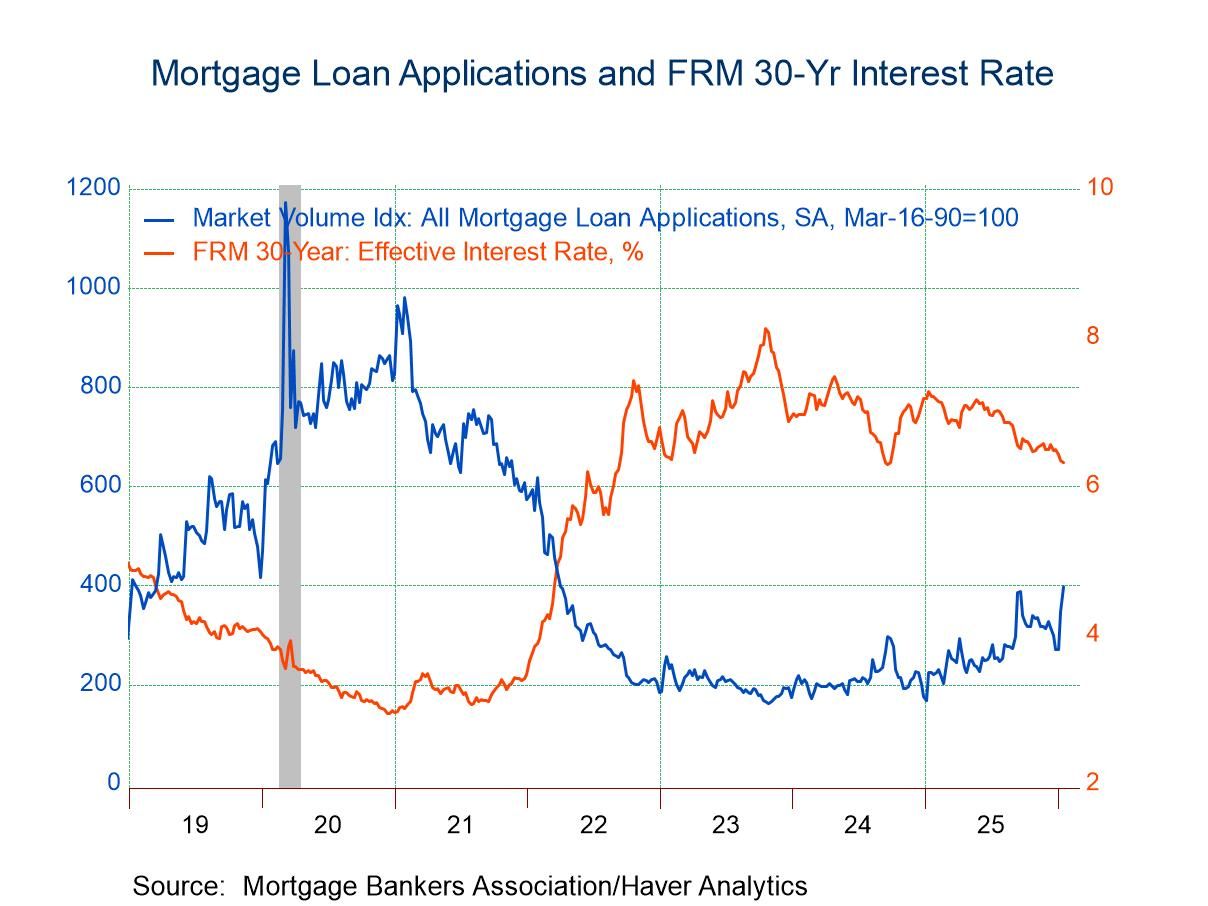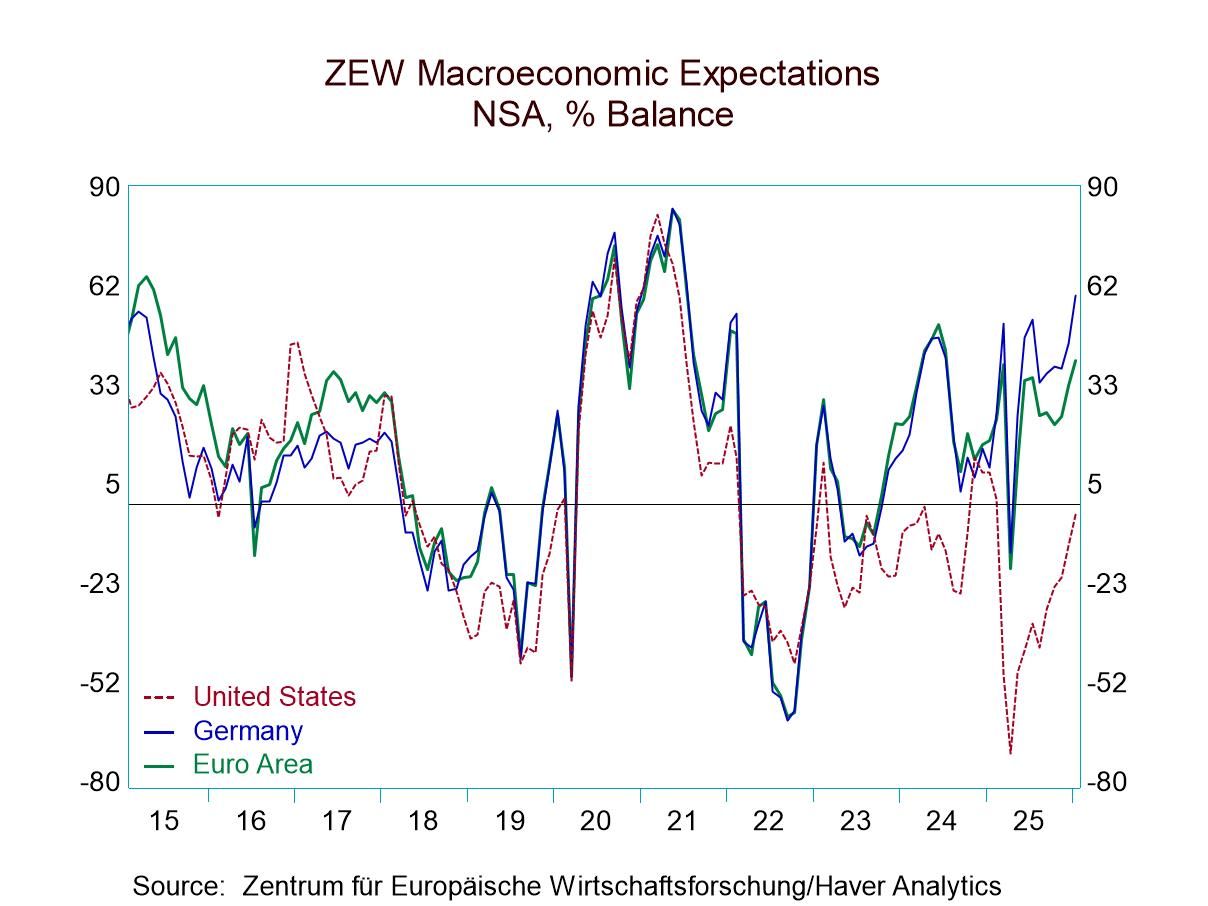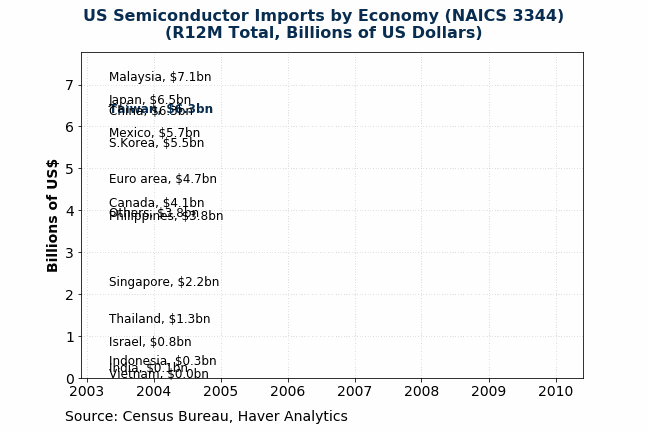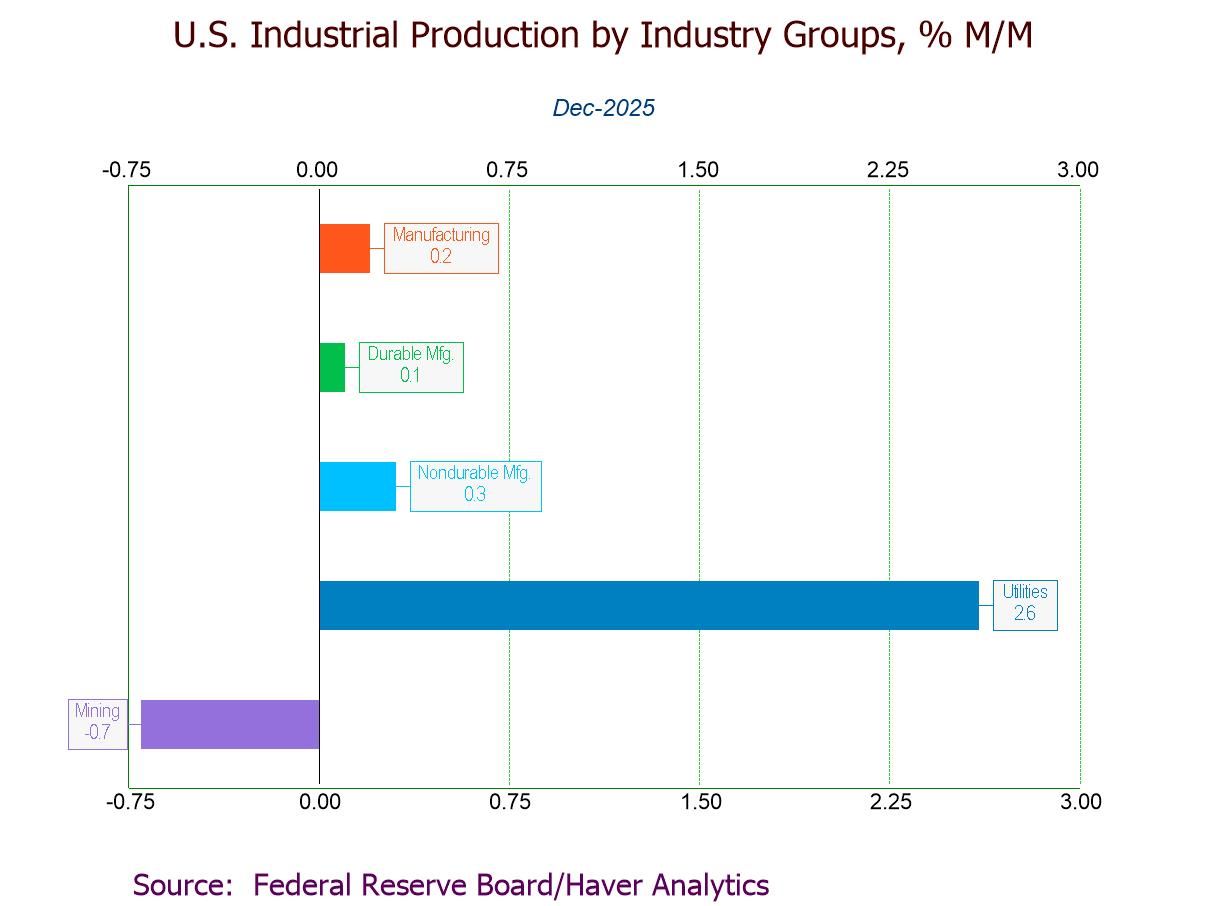 Global| Nov 09 2010
Global| Nov 09 2010Japan's 'Economy Watchers' Don't Like What They See Does Anyone?
Summary
Japan's Economy Watcher's index fell in October as the bottom fell out of the current conditions index. That index is now in the bottom 60th percentile (top42 percentile) of its High/Low range. By queue some 70% of the values for the [...]
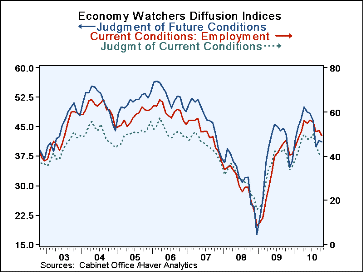 Japan's Economy Watcher's index fell in October as the bottom fell out of the current conditions index. That index is
now in the bottom 60th percentile (top42 percentile) of its High/Low range. By queue some 70% of the values for the current
index lie above the current value pushing it to the bottom 30th percent of its range by queue. The Future index is near the
bottom 25 percentile of its historic queue even though it stands at a more lofty position in its high/low range where it is
in the top 40%. And, as the chart shows, the trends in the current index are not good. At least the judgment of future conditions
edged only slightly lower and still lies above its reading of two months ago. The employment index is near the midpoint of its queue
range and in the 70th percentile of tis high/low range. Jobs are a relative bright spot.
Japan's Economy Watcher's index fell in October as the bottom fell out of the current conditions index. That index is
now in the bottom 60th percentile (top42 percentile) of its High/Low range. By queue some 70% of the values for the current
index lie above the current value pushing it to the bottom 30th percent of its range by queue. The Future index is near the
bottom 25 percentile of its historic queue even though it stands at a more lofty position in its high/low range where it is
in the top 40%. And, as the chart shows, the trends in the current index are not good. At least the judgment of future conditions
edged only slightly lower and still lies above its reading of two months ago. The employment index is near the midpoint of its queue
range and in the 70th percentile of tis high/low range. Jobs are a relative bright spot.
Economy watchers pessimism does not stand alone - The Teikoku sector indices are a lot more uniform in their (weak) assessment of current conditions as they place all the sectors between the 31st to 36th percentiles in their queue ranking. These also are low rankings but not quite as bad as the Economy Watchers' 30% and 25% nor as good as the near 50% for jobs in the Economy Watchers framework when set on a queue framework. As with the Economy Watchers the Teikoku High/Low percentile readings are generally higher than the queue percentile standings. The Economy Watchers' queue percentile are usually some 30 percentile points lower than the high/low readings. For Teikoku the queue readings are some 15% lower than the high/low assessments except for Construction and Services where both approaches place about the same standing on the sectors.
Any way you slice it these are weak readings - The percentile of range figures shown in the table above position the various survey readings not in an ordered queue of historic values but set them as a percentile between their historic highs sand lows. The message here is that the current levels of the Teikoku and Economy Watchers indices confirm that the current standing of these measures leaves them well up into their range and not close to the bottom which can be at a depressed level in recession. However, when ranked in an ordered queue of values and compared with what is normal over time the economic performance is in the bottom third of what the economy has been accustomed to or worse. Moreover, these measures largely are losing momentum. So the picture is one of 'bad' going on to 'worse'.
| Key Japanese Surveys | |||||||
|---|---|---|---|---|---|---|---|
| Raw Readings of Each Survey | Percentile of 5Yr Range* | ||||||
| Oct-10 | Sept-10 | Aug-10 | Jul-10 | Oct-10 | Sept-10 | Aug-10 | |
| Diffusion | |||||||
| Economy Watchers | 40.2 | 41.2 | 45.1 | 49.8 | 58.7% | 61.1% | 70.5% |
| Employment | 49.1 | 51.4 | 51.3 | 55.5 | 71.2% | 75.3% | 75.1% |
| Future | 41.1 | 41.4 | 40.0 | 46.6 | 60.3% | 61.0% | 57.4% |
| NTC MFG | 47.2 | 49.5 | 50.1 | 52.8 | 64.1% | 72.3% | 74.7% |
| Econ Trends (Teikoku'/50 Neutral/Weighted Diffusion) | |||||||
| MFG | 33.4 | 35.4 | 35.9 | 36.7 | 53.2% | 59.3% | 60.7% |
| Retail | 29.6 | 31.8 | 33.2 | 33.7 | 44.2% | 53.3% | 59.6% |
| Wholesale | 31.9 | 32.8 | 33.5 | 33.7 | 48.6% | 52.0% | 54.3% |
| Services | 32.4 | 33.1 | 33.6 | 33.7 | 35.5% | 37.5% | 38.2% |
| Construction | 25.2 | 26.0 | 25.6 | 26.1 | 32.2% | 35.8% | 33.7% |
Robert Brusca
AuthorMore in Author Profile »Robert A. Brusca is Chief Economist of Fact and Opinion Economics, a consulting firm he founded in Manhattan. He has been an economist on Wall Street for over 25 years. He has visited central banking and large institutional clients in over 30 countries in his career as an economist. Mr. Brusca was a Divisional Research Chief at the Federal Reserve Bank of NY (Chief of the International Financial markets Division), a Fed Watcher at Irving Trust and Chief Economist at Nikko Securities International. He is widely quoted and appears in various media. Mr. Brusca holds an MA and Ph.D. in economics from Michigan State University and a BA in Economics from the University of Michigan. His research pursues his strong interests in non aligned policy economics as well as international economics. FAO Economics’ research targets investors to assist them in making better investment decisions in stocks, bonds and in a variety of international assets. The company does not manage money and has no conflicts in giving economic advice.



